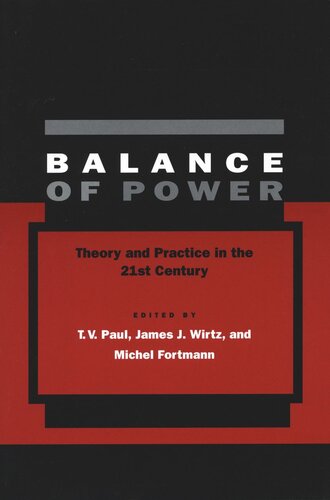

Most ebook files are in PDF format, so you can easily read them using various software such as Foxit Reader or directly on the Google Chrome browser.
Some ebook files are released by publishers in other formats such as .awz, .mobi, .epub, .fb2, etc. You may need to install specific software to read these formats on mobile/PC, such as Calibre.
Please read the tutorial at this link: https://ebookbell.com/faq
We offer FREE conversion to the popular formats you request; however, this may take some time. Therefore, right after payment, please email us, and we will try to provide the service as quickly as possible.
For some exceptional file formats or broken links (if any), please refrain from opening any disputes. Instead, email us first, and we will try to assist within a maximum of 6 hours.
EbookBell Team

4.0
36 reviewsSince the 16th century, balance of power politics have profoundly influenced international relations. But in recent years—with the sudden disappearance of the Soviet Union, growing power of the United States, and increasing prominence of international institutions—many scholars have argued that balance of power theory is losing its relevance. This book examines the current position and future of balance of power dynamics in international politics. In this book, prominent scholars pay special attention to the theoretical and historical criticisms of balance of power theory while empirically assessing its validity at both global and regional levels. The volume also looks at systemic factors favoring or hindering a return to balance of power politics. It evaluates the challenges posed by subnational actors, such as terrorist groups, and weapons of mass destruction to international order. Further, it examines the relevance of balance of power axioms in selected regions: Western Europe, Eastern Europe, East Asia, South Asia, and Latin America.